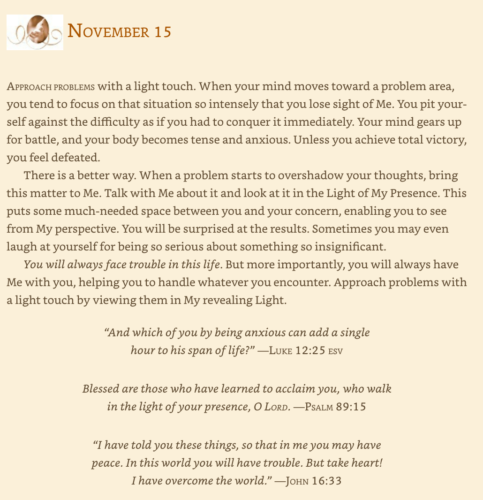A Deeper Lightness
Richard Rohr describes how people in the second half of life have an inner freedom that simultaneously holds joy and suffering.
There is a gravitas in the second half of life, but it is held up by a much deeper lightness or ‘‘okayness.’’ Our mature years are characterized by a kind of bright sadness and a sober happiness, if that makes any sense. I am just grabbing for words to describe many wonderful older people I have met. There is still suffering in the second half of life—in fact maybe even more. But there is now a changed capacity to hold it creatively and with less anxiety.
It is what John of the Cross called ‘‘luminous darkness,’’ and it explains the simultaneous existence of deep suffering and intense joy in the saints and mystics—something that is almost impossible for most of us to imagine. Eastern Orthodoxy believed that if something was authentic religious art, it would always have a bright sadness to it. I think I am saying the same of an authentic life.
(He mentioned authentic religious art and this was on my clip board … so here it is. See what you see in this contemporary Ukrainian icon, and we’ll talk about it)

In the second half of life, one has less and less need or interest in eliminating the negative or fearful, making again those old rash judgments, holding on to old hurts, or feeling any need to punish other people. Our superiority complexes have gradually departed in all directions. We learn to positively ignore and withdraw our energy from evil or stupid things rather than fight them directly. We fight things only when we are directly called and equipped to do so. We all become a well-disguised mirror image of anything that we fight too long or too directly. That which we oppose determines the energy and frames the questions after a while, and we lose our inner freedom.
Daily life now requires prayer and discernment more than knee-jerk responses toward either end of the political and cultural spectrum. We have a spectrum of responses now, and they are not all predictable. Law is still necessary, of course, but it is not our guiding star, or even close. It has been wrong and cruel too many times. The Eight Beatitudes speak to us much more than the Ten Commandments.
When we are young, we define ourselves by differentiating ourselves from others; now we look for the things we all share in common. We find happiness in alikeness, which has become much more obvious to us now; and we do not need to dwell on the differences between people or exaggerate the problems. Creating dramas has become boring.
In the second half of life, it is good just to be a part of the general dance. We do not have to stand out, make defining moves, or be better than anyone else on the dance floor. Life is more participatory than assertive, and there is no need for strong or further self-definition.
